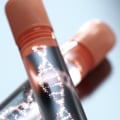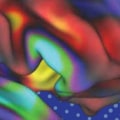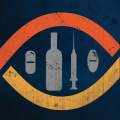Physical addiction seems to occur when repeated use of a drug changes the way the brain feels pleasure. The addictive drug causes physical changes in some nerve cells (neurons) in the brain. Neurons use chemicals called neurotransmitters to communicate. These changes may remain long after you stop using the medication.
Scientists have proposed several explanations for why some people get involved with drugs and then turn into abuse. An explanation points to a biological cause, such as having a family history of drug or alcohol abuse. Another explanation is that drug abuse can lead to affiliation with partners who abuse drugs, which in turn exposes the individual to other drugs. When medications enter the system, they produce an overabundance of dopamine in the brain.
Overabundance causes intense feelings of pleasure, many times more than the natural and healthy amounts the brain is used to. Because there is an overabundance of dopamine that the drugs are injecting, the brain will compensate and, naturally, produce less. Medications also send massive waves of dopamine through the brain. But instead of feeling motivated to do the things you need to survive (eat, work, spend time with loved ones), these massive levels of dopamine can cause harmful changes that change thoughts, feelings, and behavior.
That can create an unhealthy drive to seek pleasure with the drug and less with healthier pleasurable experiences. The cycle revolves around seeking and using drugs to get that pleasurable feeling. Despite being lost and in the midst of the destruction of their own lives, it is about time that, at some point, all drug addicts say, “Stop your impulses” and turn their attention to improving themselves. After long-term use, medications are not taken to feel the prolonged pleasure of initial use, but medications are taken to return to feeling physically stable and normal.
A typical first-time user doesn't need drugs to feel good and deal with their past, simply because they don't know what the drug feels like. Even taking the same medication through different administration methods can influence the likelihood that it will cause addiction. Addiction is no longer a substance for them, but a portal to another world to see life on their own terms. To further complicate matters, the line between drug abuse and drug dependence isn't clear and simple, says the National Institute on Drug Abuse.
Smoking a medication or injecting it intravenously, rather than swallowing it in pill form, for example, generally produces a faster and stronger dopamine signal and is more likely to cause drug misuse. People who continue to abuse drugs without help are likely to find that their life is getting out of control. Addictive drugs provide direct access to the brain's reward system by flooding the nucleus accumulbens with dopamine. Prescription drugs must be prescribed by a medical professional because they can be highly addictive and dangerous if abused.
Drugs and addictive behaviors provide a shortcut and flood the brain with dopamine and other neurotransmitters. Illicit drugs such as methamphetamine, cocaine and heroin may be more physically addictive than alcohol or marijuana. However, it then questions the assumption that marijuana necessarily leads to more dangerous forms of drug abuse.






